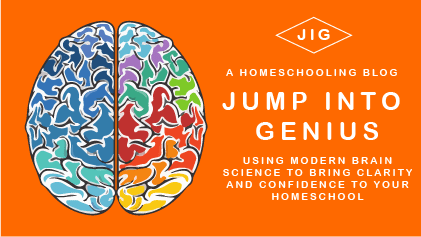“Thinking is the hardest work there is, which is the probable reason why so few people engage in it.” – Henry Ford
The first cognitive principal Daniel T. Willingham dives into in his book Why Students Don’t Like School is that while curiosity is natural, thinking is hard. Let’s unpack this principal, which is supported by a large amount of data and has been shown to have a huge impact on student learning, as that is the criteria Willingham demanded for a principal to get into his book.
Your brain does a ton of stuff, all the time, thinking is not the thing it does the best. Our brain helps us see and move, smell and hear, these things it does much more efficiently and reliably than it thinks. Your brain needs to devote a lot of space to these important functions. “Seeing is actually more difficult than playing chess or solving calculus problems”(Willingham) But it doesn’t feed more difficult, because our brain is better at it.
Thinking is inefficient
Thinking is inefficient for three reasons; it is slow, effortful, and uncertain. How fast can you take in a huge scene of visual stimuli? How fast can you solve a Sudoku, can you just glance at it and know where the numbers go? The glance tells you only what it is, a Sudoku, to solve the puzzle you will have to reach past your visual system and engage in some serious thinking.
We can see and hear at the same time. We can even see and hear and think at the same time…except…all those times a spouse or child asked you something while you were busy composing the menu for next week in your head? You were deep in thought…did you hear them? Wait…come back!!! What did I just agree to? We can’t really think about something else while we are thinking. I can even read aloud to my kids while thinking about something else…like…what are we doing about our triple conflict schedule tomorrow afternoon? But when this happens I miss the story, because understanding the story requires thought. Even if you are not at that point where you sometimes slip into doing this while reading aloud, most of us have experienced the sensation of reading while thinking about something else, only our brain doesn’t seem to have a clue what we just read and we have to go back a few paragraphs and start again.
Your visual system doesn’t make many mistakes, it usually shows you exactly what is there to see. Keeps you from running off the edge of a cliff, or into a spiky rose bush, useful stuff like that. Your thinking system…not so much. It can give you an answer that is not even close to correct. Or it can refuse to get you to any answer at all. If I throw down a calculus problem right here…you are more likely to not be able to solve it, or to get the wrong answer, than you are to get it correct…(unless you are like my husband and have a masters in mathematics).
How do we get through life when thinking is slow, takes so much effort, and is also unreliable?
We avoid thinking at all costs!
Our brain tries any other way around a problem before deciding to think about it. The first trick it likes to use to get out of thinking is memory. What is 4+4=? Your memory system pulls up 8 instantly…you don’t have to think about it. How about 308+208? Not so fast, you have to think a bit, however, you will still get the answer using your memory of addition facts and processes.
Sometimes we think our memory is pretty bad…like when you know there were 4 things you needed to get from the store…but you only have three things, you leave without that last thing, which you forgot…until you pull into your driveway. Milk! You went to the store for milk in the first place, how could you have forgotten? The other items were extraneous to the emergency milk shortage!
Our memory system is actually more reliable than our thinking system. Say What? I know, I know, I read that concept and was like, oh man, my thinking system must be pretty stupid. I mean, my memory is bad and my thinking is worse? Why am I trying to think? Why is anyone thinking when it is such a bad brain system? (Then answer to that is later in the post…keep reading.)
Our memory not only store facts but also processes. Like how to drive home from your kids dance studio. The whole route, best lanes, when to turn on your blinker, it’s all stored and you can drive home on your own autopilot. Which helps a lot. It is so much easier than having to think about it every time. This is why if you have to stop for gas afterwards instead of driving straight home, you pretty much have to chant “Stop for gas, stop for gas, hey kids, remind me to stop for gas…” until you get to the gas station or you will just drive right by it…because it is not in your brains memory that the gas stop is part of this trip. So, in these cases, you have to out-think your memory.
Using memory doesn’t require much attention
“Most of the time what we do is what we do most of the time.” (Townsend & Bever)
What if we thought about every decision instead of putting a large majority of decisions on auto-pilot? You would be exhausted! Very quickly, and I have either argued or plan to argue that much of our fatigue as homeschoolers is that we think about to many decisions. We need to decide things once, and then allow them to move onto autopilot and trust our original decision. However, since memory is imperfect, I can’t remember if this is a post I wrote, or just plan to write. At this point, I think it is a miracle that I thought of it at all!
Your brain is set up to save you from thinking, some of the brain’s most important functions, like vision, do not require thought. Also, when faced with a task or problem you revert to using your memory instead of thinking. But what is really crazy to think about (if we can manage it) is this: Your brain actually changes in order to avoid thinking. When we have to do something that requires a lot of thought over and over again it soon becomes automatic, stored in our memory. Our brain has changed itself so we can quit having to think about that task and it will no longer be hard.
“Thus a task that initially takes a great deal of thought becomes, with practice, a task that requires little or no thought.” Willingham
So why do we think? For pleasure. Sudoku or Crossword anyone? We are naturally curious and we actually like thinking, within the right conditions. These conditions are what can be used to encourage students towards this slow, hard, unpredictable thing called thought. If the conditions are not good, we just quit thinking, because it is hard.
Curiosity is natural, but it is also fragile. Hence all those quotes we need to inspire ourselves to remember how important it is.
“The important thing is not to stop questioning. Curiosity has its own reason for existing.”
― Albert Einstein
We like thinking because solving problems brings pleasure. When our cognitive effort is successful and we understand something new, we get a pleasure rush. (Most likely caused by a release of dopamine.) This happens only when we solve the problem. Not while we are thinking about the problem. Not when we give up on the problem, deciding the effort is too much for the reward. When WE figure it out. Not when we know the answer. If someone else gives us the answer we are deprived of our brains built-in reward system.
So we like mental work, or thought, because of the feeling of satisfaction we receive when we succeed. Why do some subjects strike us as boring and another spark immediate interest? It is often thought that boring things are just boring because they are boring. Or we just say that some people just think certain subjects are boring. For example, “not-math people” think math is boring, and “not-grammar” people think prepositions are boring.
Willingham does not believe content drives interest. We have all had times we were excited about a certain topic, and yet encountered a book or documentary on the topic that absolutely bored us to distraction. There are also times you may have no interest until you start exploring something new, and then find out you are really interested in it and want to learn more. So what does drive interest? How do we keep the curiosity alive?
It is the place in-between hard and easy. The place where we are prompted to think in order to understand something, and we can think well enough to solve or understand. Problems that are too easy bore us, problems that are too hard we give up on solving because we don’t feel the pleasure of solving it will be worth the amount of work involved, or because we simply believe we cannot solve it. If a student is consistently presented with work that is too hard or too easy, he will not like school.
How to make thinking easier for kids
Let’s look at why thinking is hard so we can delve into making it easier for our kids. Working memory holds all the stuff you are thinking about. Long-term memory holds the rest of your knowledge, waiting quietly for the moment it is called up, and always ready to jump into action when needed.
“Thinking happens when you combine information in new ways.” Willingham
This takes place within your working memory. Your long-term memory stores more than just facts, it also stores procedural knowledge or the memory of the process of how to do something. Procedural knowledge is like a recipe of how to accomplish a certain type of thought. Your working memory only has a limited amount of space to use, so if it becomes too crowded with new information that you are holding it will become harder to think.
If that same information is being stored in your long-term memory you can pull it up and drop it as needed while working through your procedure. When can we see this? In a process like long-division. We grab the smaller math facts we need to plug in to the equation and then let them go, we don’t have to keep them in our working memory. Long division also has a magical way of revealing whether or not a child really knows their math facts. They have to keep this new procedure in their working memory, and if they do not have quick access to those multiplication and subtraction facts, they will make a lot of small arithmetic mistakes. Their working memory was overloaded, and they could not hold all the needed pieces at that same time. This is relieved when they really do know their multiplication and subtraction well enough that all of that information is stored in long-term memory and quickly and easily retrieved. It also becomes easier once they have memorized the procedure for long-division.
We need four things to support successful thinking.
1) Information from the environment
2) Facts in long-term memory
3) Procedures in long-term memory
4) Space in working memory
All of these things need to line up, or thinking will most likely not happen.
In Your Homeschool
What you want to do in your homeschool is make sure your child is consistently experiencing the pleasure rush of solving a problem.
To do this we first have to make sure that there are indeed problems to be solved. We can’t just see our children’s brains as empty buckets that we just need to shovel information into each day. We have to see that we are working with this complex system and we need to make sure it is lighting up. Some curricula are great at giving our students problems to solve, others we may need to look ahead and think about what interesting questions or challenges we can present to our students. Also, we have to know that if there is nothing in their long-term memory to work on the problem with, then it is probably not the right time for that problem. It may be a good problem to use at the end of your studies. Also, make sure the problems that are presented by either you or the curriculum are clear and easy to understand. It needs to be clear to your child what problem they are trying to solve.
Next, we need to respect what our child’s brain can and cannot do today. There are many problems that they may not have the needed background knowledge to solve. Also, we need to be aware of the potential to overload their working memory. Things that overload working memory are; multi-step directions, unconnected facts, and applying a brand-new concept to the material they just learned.
View school work as a series of questions instead of a series of answers. No one enjoys being given a long list of answers. But everyone enjoys a question that is just right. One they know they can solve if they work on it. One hard enough that solving it will be pleasurable. You can think about the answers you want your child to know by the end of a lesson, and think about what questions can lead them to those answers.
It is good to puzzle students a little, to ignite their curiosity, but this should be done not only at the beginning of a lesson but also at the end, when they can apply their new knowledge to the puzzle. Usually, different puzzles will be needed at the beginning and end of the lesson since a puzzle appropriate at the end should be too hard at the beginning. Although you can present the puzzle at the beginning, give your child a few minutes, and then tell them your lesson will give them the clues they need to solve the puzzle.
As mom, you often know what does and doesn’t work with your students. Do more of the stuff that works, and get rid of the stuff that doesn’t. If you are in the process of trying to figure out what works and what doesn’t for your child, take notes. We have enough information to hold in our working memory. Give your own brain a break and keep a journal about what worked well and what didn’t and any ideas you would like to try.
This is just a short explanation of the concept covered by Willingham in his book Why Student’s Don’t Like School. There is so much more in his book, and I strongly recommend reading it. One thing Willingham does in his book is take you through many more examples, persuading you as he introduces each idea. If I had a top ten books home educators should read, this would be on it.



4 Responses
hmmm… interesting. I didn’t know that thinking was so hard. I know that sometimes it’s a struggle to get everything organized mentally. but the actual process? Interesting indeed.
[…] Thinking is Hard: How to Help Your Child Think […]
[…] The reason repetition works so well is really quite simple. Our brains don’t like to work hard. When we make them work on the same bit of information over and over again in our working […]
[…] thinking is hard, there is a human tendency to avoid it. A problem we all must overcome if we are to be fully human. […]